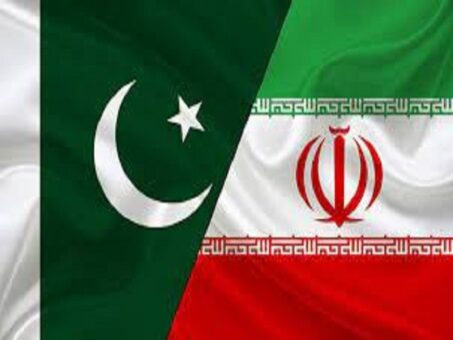Karachi, November 24, 2023 – Iran has proposed the establishment of border markets along the Pakistan border to promote bilateral trade.
Reza Amiri Moghadam, the Ambassador of Iran in Pakistan, made this proposition during his visit to the Federation of Pakistan Chambers of Commerce and Industry (FPCCI).
Ambassador Moghadam highlighted the strategic importance of such markets, considering Iran’s position as one of the world’s leading producers of petrochemical and energy resources. Pakistan, being heavily dependent on imported oil and energy sources, could benefit significantly from reliable and cost-effective supplies from Iran.
During his meeting with the FPCCI, Ambassador Moghadam emphasized the existing popularity of Pakistani rice in Iran due to its exceptional taste, and he acknowledged the global renown of Pakistani textiles. Additionally, he underlined the strong cultural and religious bonds between the two nations. Expressing his eagerness to foster stronger ties, he proposed enhancing people-to-people, business-to-business, and chamber-to-chamber contacts.
“We need to increase business tourism between the two countries, and the Iranian embassy is fully committed to facilitating the Pakistani business community with visas and participation in trade exhibitions and fairs in Iran,” stated the Iranian envoy, as quoted in the press release.
FPCCI President Irfan Iqbal Sheikh echoed the sentiments, emphasizing that boosting trade with Iran could help address Pakistan’s persistent trade deficit issues. Sheikh pointed out that Iran, as a neighboring country, provides a cost-competitive market for Pakistani exports due to minimal shipping and logistics costs through the land-based route.
Sheikh identified the lack of banking channels as a significant impediment to increasing Pakistani exports to Iran and advocated for the establishment of an effective and functional currency swap mechanism to address the issue.
Shaukat Omerson, Vice President of FPCCI, highlighted the vast array of products and services that Pakistan can export to Iran, including rice, fruits, vegetables, value-added textiles, sports goods, surgical instruments, pharmaceuticals, and IT services. Despite the current bilateral trade standing at $2.4 billion, Omerson stressed that this figure is considerably below the potential, considering the combined population of over 300 million for the two countries.
Omerson also underscored the opportunities presented by Pakistan’s inclusion in the Transports Internationaux Routiers (TIR) convention, enabling land-based transportation routes for trade with Central Asian countries, Turkey, and beyond.
As the proposal gains attention, both nations are hopeful that these initiatives will pave the way for a more robust and mutually beneficial economic partnership. The focus on overcoming logistical challenges and strengthening diplomatic and business ties is seen as a positive step towards unlocking the full potential of the Iran-Pakistan trade relationship.
